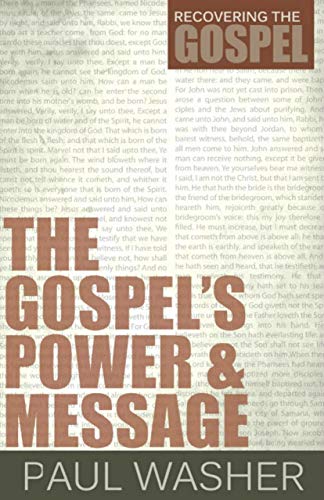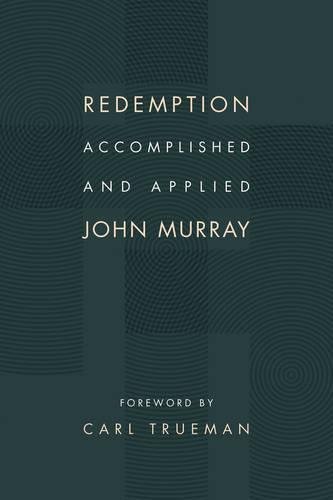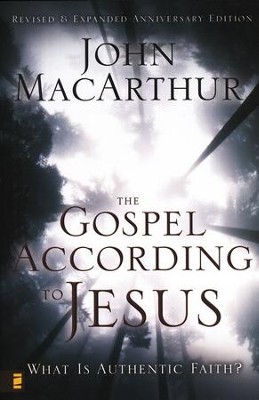Quotes about God-Forgiveness
Sins are so remitted, as if they had never been committed.
A Puritan Golden Treasury, compiled by I.D.E. Thomas, by permission of Banner of Truth, Carlisle, PA. 2000, p. 110.
Are we trying to atone for our sins? We can’t. Only Jesus can, and He already did. Don’t try to repeat the atonement – just accept it! Embrace God’s forgiveness.
The Grace and Truth Paradox, 2003, Used by Permission from Eternal Perspective Ministries, www.epm.org, p. 84.
We tend to drag up our old sins, that we tend to live under a vague sense of guilt…we are not nearly as vigorous in appropriating God’s forgiveness as He is in extending it. Consequently, instead of living in the sunshine of God’s forgiveness through Christ, we tend to live under an overcast sky of guilt most of the time.
Copied from The Gospel for Real Life by Jerry Bridges, © 2002, p. 67. Used by permission of NavPress – www.navpress.com. All rights reserved. Get this book!
Our sins have been put away. To use the language of the Scriptures…they are completely removed, put behind God’s back, blotted out, remembered no more, and hurled into the depths of the sea.
Copied from The Gospel for Real Life by Jerry Bridges, © 2002, p. 69. Used by permission of NavPress – www.navpress.com. All rights reserved. Get this book!
No child of God sins to that degree as to make himself incapable of forgiveness.
A Puritan Golden Treasury, compiled by I.D.E. Thomas, by permission of Banner of Truth, Carlisle, PA. 2000, p. 110.
The idea is not simply that we have been forgiven, and therefore we ought to forgive, but that God Himself, in Christ has forgiven us, and therefore our debt is incalculable. No matter how much wretched evil has been done against us, it is little compared with the offense that we have thrown in the face of God. Yet God in Christ has forgiven us. If we know anything of the release of this forgiveness, if we have glimpsed anything of the magnitude of the debt we owe to God, our forgiveness of others will not seem to be such a large leap.
Love and Forgiveness by D.A. Carson taken from Love in the Hard Places by D.A. Carson, 2002, Crossway Books, a division of Good News Publishers, Wheaton Illinois 60187, www.crosswaybooks.org. Page 80-81.
Forgiveness is the divine miracle of grace; it cost God the Cross of Jesus Christ before He could forgive sin and remain a holy God… When once you realize all that it cost God to forgive you, you will be held as in a vice, constrained by the love of God.
Consider diligently these words, without works, by faith only, freely we receive remission of our sins. What can be spoken more plainly, than to say, that freely without works, by faith only, we obtain remission of our sins?
If you say “I can’t forgive myself,” it’s probably a sign of worldly grief – either unbelief in God’s promises and the sufficiency of Christ’s work on the cross, or regret that is merely focused on your loss of esteem and your loss of opportunities.
Forgiveness transcends finite human reason. The mere thought that one’s entire sin account can be utterly eradicated is staggering. Yet it is quite clear that the forgiveness of sins strikes at the very core of human need and experience. It speaks of guilt gone, remorse removed, depression disappearing and emptiness of life eradicated. What power there is in forgiveness! And it all comes abundantly from the gracious hand of God.
The blood of Jesus unfailingly cleanses the believer from his sin at all times. There could be no sin that the blood does not cover, confessed or not confessed. Though our sins were taken care of in the cross of Christ, and by His blood being spilled for us, it is applied immediately in time to every sin we commit the nano-second we commit it.
Confessionism: The Misuse of 1 John 1:9, Christian Communicators Worldwide, www.CCWtoday.org. Used by Permission.
If God did not forgive the Christian who confesses and turns away from sin, God would become unrighteous by holding in contempt Christ’s atoning work, whose purpose was to uphold God’s glory.
The Unity of the Bible, Zondervan, 1992, p. 283. Get this book!
There comes a time when God’s patience runs out (Rom. 2:4-10; 2 Pet. 3:8-10; Jude 5). Those living in continual disobedience must not presume upon God’s grace, falsely assuming that God’s kindness means that he is winking at their sin. Nor should we take God’s forgiveness for granted. We must not sin willfully, thinking that by doing so we are simply giving God another opportunity to glorify himself by showing forth his mercy. As Paul would put it centuries later, “Are we to continue in sin that grace may abound? By no means!” (Rom. 6:2). To do so is to reveal by one’s hardened disobedience that the saving power of God is not really in one’s life (see Rom. 6:2b-14),
God may forgive me, but I can’t forgive myself. This statement may be another form of pride masking as false humility. God, the Judge and Arbiter in the highest courtroom, pronounces you “not guilty” by virtue of what Christ has done for you on the cross. But when you make this statement, you function as the judge and arbiter in a much lower court and overrule the higher court’s decision. This reveals contempt for God’s stature as the ultimate Judge. If you do not see your daily need of the mercy of Christ and do not experience it regularly, you will not extend it to others when they sin against you.
So the Cross does not merely tell us that God forgives, it tells us that that is God’s way of making forgiveness possible. It is the way in which we understand how God forgives. I will go further: How can God forgive and still remain God? – That is the question. The Cross is the vindication of God. The Cross is the vindication of the character of God. The Cross not only shows the love of God more gloriously than anything else, it shows His righteousness, His justice, His holiness, and all the glory of His eternal attributes. They are all to be seen shining together there. If you do not see them all you have not seen the Cross.
May a merciful God preserve me from a Christian Church in which everyone is a saint! I want to be and remain in the church and little flock of the fainthearted, the feeble and the ailing, who feel and recognize the wretchedness of their sins, who sigh and cry to God incessantly for comfort and help, who believe in the forgiveness of sins.
Because we continue to sin, we need the continued forgiveness of cleansing; but we do not need the continued forgiveness of redemption.
God forgave sinners before Christ died. God forgives sinners since Christ died. But God forgives all sinners because Christ died.
The Final Passover, the First Communion. The sermon originally appeared at: (https://www.gty.org/library/sermons-library/42-269/the-final-passover-the-first-communion) at www.gty.org. © 1969-2008. Grace to You. All rights reserved. Used by Permission.
In the last resort forgiveness is always due to God’s being what He is, and not to anything that man may do. Because God is God, He must react in the strongest manner to man’s sin, and thus we reach the concept of the divine wrath. But because God is God, wrath cannot be the last word. “The Lord is good; his mercy endureth forever” (Psm. 100:5).
The unchangeableness of the Lord’s love, and the riches of His mercy, are likewise more illustrated by the multiplied pardons He bestows upon His people, than if they needed no forgiveness at all.
The sin which is not too great to be forsaken, is not too great to be forgiven (Thomas Horton).
A Puritan Golden Treasury, compiled by I.D.E. Thomas, by permission of Banner of Truth, Carlisle, PA. 2000, p. 111.
[Being forgiving is] not the ground on which God bestows forgiveness but the ground on which man can receive it (William Manson).
I must feel the truth that once I was as close to hell as I am to the chair I am sitting on – even closer. Its darkness, like vapor, had entered my soul and was luring me down. Its views were my views. I was a son of hell (Matt. 23:15), a child of the Devil (John 8:44) and of wrath (Eph. 2:3). I belonged to the viper’s brood (Matt. 3:7), without hope and without God (Eph. 2:12). I must believe that just as a rock climber, having slipped, hangs over the deadly cliff by his fingertips, so I once hung over hell and was a heartbeat away from eternal torment. I say it slowly, eternal torment!
God has already forgiven all our sins one-and-for-all through the death of Jesus Christ. Why then do we need to keep on asking for His forgiveness? The answer, of course, is that we are not perfect, and never will be in this life. We keep on sinning. We break God’s commandments every day, in thought, word, and deed. And although all our sins have been forgiven – past, present, and future – sin still has a way of disturbing our fellowship with God. It interferes with our intimacy with Him, estranging us from His holiness. When we sin, therefore, our personal relationship with God needs to be restored. The Puritans called this “renewing our repentance.” It means asking God to take the forgiveness He has already granted through Christ’s death on the cross and to apply it freshly and directly to our sins.
Lead Us Not Into Temptation from When You Pray by Philip Graham Ryken, © 2000, Crossway Books, a division of Good News Publishers, Wheaton Illinois 60187, www.crosswaybooks.org, page 129.
It took the very blood of God to grant us our freedom. The life of Jesus Christ, that was the ransom price for our redemption. The Son of God chose to die. He chose to take our sin. He chose to spill His blood. He chose to face the wrath we deserved to break our chains and grant us our freedom.
When have you most recently felt the crushing pain of a burdened heart, darkened soul or guilty conscience solely because of your sin against God? Does sin hurt you as much as it hurts God? Does it make you sick, grieved or disappointed? Does it weigh on you prompting repentance and calling to God for restoration? Do you ever feel that your sin has divided you from a rich relationship with God and the feeling is one of emptiness, despair and regret?
We must not be consumed with our past pain. We need to get beyond our poor choices (guilt, regret) and the ways others have hurt us (bitterness, self-pity). This is the unnecessary baggage we must discard. Satan wants us focused on the past. God want us to move forward and by His grace we can. Discard the weight you are needlessly bearing by casting your cares upon the Lord. Appreciate His forgiveness (for your sins), and the forgiveness He expects us to extend to others (for their sins). Learn “the peace of Christ that surpasses all comprehension.”
What do you do with the person who says, “I’ve asked God to forgive me about this, but I still feel guilty”? I hear that statement over and over again. I usually say to these people, “If you still feel guilty, then pray to God again. But this time don’t ask Him to forgive you for the sin that is haunting you. Rather, ask Him to forgive you for insulting His integrity by refusing to accept His forgiveness. Who are you to refuse to forgive yourself when God has forgiven you? When God promises to forgive His people when they repent, He is not playing games. If He says He will forgive you, then He will forgive you. And if God forgives you, you are forgiven.”
It is axiomatic that to err is human and to forgive is divine. This axiom is so set in concrete that we assume that forgiveness is not merely a divine option, but a veritable prerequisite for divinity itself. We think that not only may God be forgiving, but He must be forgiving or He wouldn’t be a good God. How quick we are to forget the divine prerogative: “I will have mercy on whomever I will have mercy, and I will have compassion on whomever I will have compassion” (Rom. 9:15).
We are today accepted in the Beloved, today absolved from sin, today acquitted at the bar of God… We are now pardoned; even now are our sins put away; even now we stand in the sight of God accepted, as though we had never been guilty. “There is therefore now no condemnation to them which are in Christ Jesus.” There is not a sin in the Book of God, even now, against one of His people. Who dares to lay anything to their charge? There is neither speck, nor spot, nor wrinkle, nor any such thing remaining upon any one believer in the matter of justification in the sight of the Judge of all the earth.
I believe that as often as I transgress, God is more ready to forgive me than I am ready to offend.
The joy of pardon has a voice louder than the voice of sin. God’s voice speaking peace is the sweetest music an ear can hear.
Pardon of sin must ever be an act of pure mercy, and therefore to that attribute the awakened sinner flies.
It was your great American wit, Mark Twain, who once said, “Man is the only animal that blushes, and the only animal that needs to.” We are ashamed, are we not, of things we’ve done in the past. Nobody is free who is unforgiven. Instead of being able to look God in the face or to look one another in the face, we want to run away and hide when our conscience troubles us.
Scripture never tells us to forgive ourselves. When we try to “forgive” ourselves, we are attempting the impossible. Forgiveness assumes an innocent party has been wronged, and it is the job of the person who has been wronged to forgive. The offending party is the one that receives forgiveness. We are the offender; God is the one who has been wronged, since our sin is rebellion against Him. By focusing on forgiving ourselves, we have taken the spotlight off of God and pointed it at us – making it doubly difficult to let go of our sin! He has forgiven us. We must simply receive that forgiveness and rest in it. That means releasing those sins we want to hold on to, refusing to revisit them in our minds, and allowing the truth of our forgiveness to cover us with His peace. Absolution from the Lord is far more powerful than absolution from oneself.
Getting Past Guilt: Overcoming Barriers to Feeling Forgiven. See more at: http://www.insight.org/resources/articles/encouragement-healing/getting-past-guilt.html?referrer=https://www.google.com/#sthash.Pk5C35Qn.dpuf.
Our forgiving others is not a cause of God’s forgiving us, but it is a condition without which He will not forgive us (Mt. 6:12).
Don’t say, “How could God forgive me for that!” (whatever that is). Don’t think that God’s forgiveness is a begrudging forgiveness and with that thought deny some of God’s glorious love. And don’t think that God’s promises are only for other people. If this is how you are thinking, you must realize that your own sins, no matter how big, are not bigger than God’s pleasure in forgiveness.
When People are Big and God is Small, P&R Publishing, 1997, p. 169- 170. Used by Permission. Get this book!
You may think that God is no better than you. In other words, you couldn’t imagine forgiving someone seventy times seven, so you can’t believe that God would. If this is the way you are thinking, then you are believing a lie. God is not like us. His forgiveness is not like ours. Don’t use your own weakness as the standard by which you understand God’s greatness! Just listen as He reveals Himself in His Word.
Blame in on the Brain? P&R Publishing, 1998, p. 201. Get this book!
Our Father is simply inclined to forgive. This distinguishes Him from all invented gods and from all of humanity. He is eager to forgive at the slightest hint that we acknowledge our sin and guilt (Jer. 3:13).
Talk About Sin by Edward Welch taken from Caring for One Another by Edward Welch, copyright 2018, Crossway Books, a division of Good News Publishers, Wheaton Illinois 60187, www.crosswaybooks.org. Page 65.































